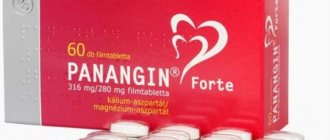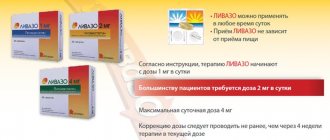- MagniuM
- Articles
- Magnesium tablets
|
|
Date of publication: 06/19/2019
Magnesium is a microelement without which the normal functioning of individual organs and the entire human body as a whole is impossible. This mineral takes part in a huge number of biochemical processes occurring in the human body. When there is a lack of an element, disturbances occur in the functioning of the nervous, digestive, and cardiovascular systems. Based on tests and the general clinical picture, the doctor prescribes the patient to take Mg in one form or another, as a rule, this is a mineral in tablets. Although today they can be replaced with other, safer means. For example, the functional drink “Magnium” enriched with this substance.
Indications for prescribing magnesium supplements
Data from clinical studies conducted vary depending on the region in which they were conducted. According to some data, every third person suffers from hypomagnesemia, according to other data – every second person. One thing is clear - the lack of a useful substance negatively affects the health of a huge number of people, and every year there are more and more of them. The reason for this is modern living conditions.
The main natural source of the microelement is food of plant origin, and with a balanced diet, a lack of Mg should not be observed. But now product manufacturers are not chasing the quality of the goods supplied, but the quantity. It has been repeatedly proven that modern food contains 70% less vitamins and minerals than 30-40 years ago.
In addition, the absorption of nutrients is influenced by stress, an active lifestyle, excessive physical activity, and overwork. In these cases, the need for magnesium, as a vital element, increases by 1.5 times. Its lack affects general health and performance. The consequences of hypomagnesemia can be both ordinary nervous disorders and cancer.
Certain diseases or exposure to external factors are the reason for additional intake of vitamin and mineral complexes.
The following factors may be indications for prescribing medications containing magnesium:
- postoperative period;
- diabetes;
- diseases of the gastrointestinal tract;
- taking certain medications;
- use of hormonal contraceptives;
- excessive sweating;
- alcohol addiction;
- regular or chronic stress.
Other factors may also be reasons for taking magnesium supplements.
- Hypomagnesemia detected using a biochemical blood test.
- Severe symptoms of hypomagnesemia are increased nervousness, fatigue, sleep disturbances, interruptions in the functioning of the digestive system, weakness, memory impairment, decreased concentration, muscle cramps, surges in blood pressure, meteosensitivity, tachycardia.
- Diseases of the cardiovascular system (heart attacks, arrhythmia).
- Arterial hypertension.
- Pregnancy and breastfeeding period.
- Regular constipation.
- Removal of bile, waste, toxins, cholesterol.
- Heavy metal poisoning.
As we can see, additional consumption of the mineral can be prescribed for a wide variety of reasons. This once again proves that this element is involved in almost all processes occurring in organisms. The attending physician decides which magnesium is best to take depending on the specific case.
Magnesium and sports
Some more important and interesting facts about magnesium:
- In marathon runners, after a 42 km race, a significant decrease in the concentration of magnesium in the blood serum was recorded against the background of an increase in potassium and sodium levels5.
- In middle- and long-distance runners, an ergometer test showed a significant increase in serum calcium and magnesium levels, however, against the background of an increase in cortisol and thyroid hormone levels, the level of magnesium in red blood cells significantly decreased6. However, magnesium supplementation improves blood glucose metabolism, reduces the inflammatory response, and reduces muscle soreness after exercise7.
- When swimming, plasma magnesium levels decrease even in experienced swimmers. This is due to the participation of this mineral in thermoregulation, and we know that swimming is a sport that requires constant maintenance of body temperature in water8.
It is important to remember that hormone levels, particularly adrenaline and insulin, change significantly during exercise and require additional magnesium supplementation, since magnesium ions are necessary to maintain normal receptor sensitivity to these hormones.
Chronic magnesium deficiency contributes to impaired fat metabolism, changes in blood sugar levels9, and increased blood pressure during physical activity10.
Reduced levels of magnesium in the blood, associated with insufficient intake, against the background of physical exercise stimulate the development of inflammatory processes and contribute to the development of immunological disorders11.
The best magnesium preparations
The assortment of pharmacies today is amazing in its abundance, so it can be very difficult for patients to choose a drug containing Mg on their own. We have prepared a list of the most popular and effective remedies, which include not only tablets.
Magnesium B6
This medicine is from the domestic manufacturer Evalar. It comes in the form of tablets and is available in standards of 30 or 50 tablets. Allowed for use by children, adults and pregnant women. Prescribed for various conditions of the body and diseases of the central nervous system.
The active ingredients are magnesium lactate 2-water and vitamin B6. The drug performs a number of functions and is prescribed to children and adults with the following symptoms of mineral deficiency:
- sleep disturbance;
- nervousness and irritability;
- nervous or physical fatigue;
- pain in muscles and joints;
- frequent stress;
- constant feeling of anxiety.
For pregnant women, the drug can be prescribed for the same symptoms, as well as for severe toxicosis, hair loss, mood swings, risk of miscarriage, and cramps in the calf muscles.
Since the tablets have some contraindications, their use must be agreed with a doctor. Contraindications include intolerance to the components of the drug and fructose, age under 6 years, glucose-galactose deficiency.
In addition, side effects may occur in the form of skin rash, bronchospasms, nausea, abdominal pain, and stool disorders.
Magne B6
Manufactured by the French company Sanofi Winthrop Industry. It comes in the form of liquid in ampoules; the package contains 10 ampoules of the medicine. 1 ampoule contains 186 mg Mg lactate dihydrate and 936 mg Mg pidolate. This microelement concentration is equivalent to 100 mg Mg.
Magne B6 is used by patients with established hypomagnesemia, isolated or in combination with other deficiency conditions, which are accompanied by irritability, sleep disturbances, intestinal colic and stomach cramps, rapid heartbeat, fatigue, spasms and tingling in the muscles.
Contraindications to the use of Magne B6 are:
- increased sensitivity to constituent substances;
- severe renal failure;
- age of children under 1 year;
- concurrent use of levodopa.
It is recommended to take the drug with caution in case of moderate renal failure.
Side effects from taking Magne B6 may include allergic reactions such as urticaria, rash, itching, bronchospasm, as well as stool disorders and abdominal pain.
Magnelis B6
Another drug of Russian origin. Available in the form of white or almost white film-coated tablets. The active ingredient is magnesium lactate in an amount of 470 mg per tablet, as well as pyridoxine hydrochloride in an amount of 5 mg. Contains sucrose as an excipient and is therefore not recommended for diabetics.
Indications for prescribing Magnelis B6 may include such signs of pathology as:
- slow metabolism;
- increased nervous excitability;
- poor sleep;
- fast fatiguability;
- poor memory;
- low concentration;
- disorders in the gastrointestinal tract.
The main indication for prescribing the drug is identified Mg deficiency, which may be isolated or accompanied by other deficiency conditions.
Contraindications for taking the medicine are the age of the child under 6 years and severe renal failure. It is recommended to use the medicine with caution in case of moderate renal failure, as well as during pregnancy and breastfeeding.
Possible side effects from taking Magnelis B6, experts call disturbances in the functioning of the gastrointestinal tract (constipation, abdominal pain, nausea, flatulence) and allergic reactions.
You should be careful when taking this magnesium drug along with other medications. It can weaken their effect and impair absorption.
Magnesium sulfate
This is one of the oldest and most time-tested remedies with magnesium, better known as Magnesia. It has two forms of release - a solution for intravenous and intramuscular injections and a powder for oral administration. The powder must be used to prepare a suspension.
Magnesia has a number of effects:
- laxative;
- choleretic;
- vasodilator;
- diuretic;
- anesthetic;
- anticonvulsant;
- hypnotic;
- antiarrhythmic.
This remedy is not out of use among emergency doctors to this day due to its wide spectrum of action. Magnesia is also often used in the field of physiotherapy, prescribed for electrophoresis and medicinal baths.
It is possible to use Magnesia for local treatment in the form of compresses for healing wounds, warts, resolving hematomas and abscesses, and reducing external signs of psoriasis.
Magnesia is used in various branches of modern medicine.
- Therapy : asthma, excessive sweating, infrequent urination, heavy metal poisoning, wounds, warts.
- Neurology : convulsions, nervousness, short temper, memory and sleep deterioration, chronic stress, fatigue, depression.
- Gastroenterology : bile stagnation, pancreatitis, cholecystitis, digestive disorders and other diseases of the gastrointestinal tract.
- Cardiology : hypomagnesemia, tachycardia, arrhythmia, heart attacks, heart attacks.
- Gynecology : threat of premature birth, toxicosis, painful menstruation, menopause.
Magnesia in any form should be taken with extreme caution, as it has a number of contraindications and side effects. An overdose of the drug is no less dangerous.
Contraindications to taking Magnesia are the following conditions:
- appendicitis;
- intestinal obstruction;
- dehydration;
- rectal bleeding;
- respiratory dysfunction;
- prenatal stage in women;
- severe renal failure;
- low blood pressure;
- low heart rate;
- disturbances in the functioning of the heart muscle.
In some cases, Magnesia can have a negative effect on:
- nervous system – headaches and confusion, convulsions, insomnia, anxiety, depression, increased fatigue;
- cardiovascular system - low blood pressure, arrhythmia, sweating, low body temperature, arrhythmia, redness of the skin of the face;
- gastrointestinal tract - bloating, diarrhea, flatulence, nausea and vomiting.
Magnesia can affect the absorption and effect of other medications taken, and it is not at all compatible with some medications (for example, Hydrocortisone or Novocaine).
Magne Express
This is a dietary supplement to provide an extra dose of Mg throughout the day. Available in sachet form, taken twice a day with meals. The active ingredient is Mg citrate.
Magne Express has a positive effect on the course of metabolic processes, reduces the perception of stressful situations, and comprehensively strengthens the nervous system.
Contraindications to taking dietary supplements are:
- individual intolerance to the components of the drug;
- pregnancy;
- lactation;
- acute renal failure;
- use of levodopa.
The drug is prescribed as a supplement, but it is not able to help with severe hypomagnesemia, since the concentration of Mg in it is quite low.
Panangin
The active ingredients are potassium aspartate and magnesium aspartate. It is in the form of a concentrate for preparing an infusion solution and can be transparent or greenish. Available in ampoules for intravenous use.
The drug is a source of microelements such as magnesium and potassium. Prescribed for heart pathologies.
- Cardiac ischemia.
- Myocardial infarction.
- Chronic and acute heart failure.
- Heart rhythm disturbances, arrhythmia.
If the drug is administered too quickly, symptoms of excess potassium (irregular heart rhythm, confusion, fatigue, cardiac arrest) and magnesium (low blood pressure, nausea, vomiting) may appear.
Panangin has a number of contraindications:
- intolerance to the components of the drug;
- renal failure in acute or chronic form;
- Addison's disease;
- excess Mg and K in the body;
- pregnancy and breastfeeding;
- age up to 18 years.
It is recommended to take Panangin with caution in combination with other medications.
Asparkam
Asparkam is an inexpensive substitute for Panangin and has the same active ingredients in an amount of 175 mg. Available in tablet form. Intravenous administration is also possible. It is a source of useful microelements such as Mg and K. It is able to prevent and combat the lack of these substances. Promotes the metabolism of carbohydrates and proteins.
The action of Asparkam, like Panagin, is aimed at combating pathologies of the cardiovascular system. The positive aspects of the product include its affordable price and good absorption of the components.
It is prescribed as an adjuvant for angina pectoris, heart attack, cardiac arrhythmias and heart failure.
Side effects from the cardiovascular system (low blood pressure, heart rhythm disturbances), and the digestive system (nausea, vomiting, upset stool, dry mouth, abdominal pain) cannot be ruled out. A state of general weakness and fatigue is possible.
Asparkam is contraindicated in acute or chronic renal failure. Asparkam can be used during pregnancy and lactation, but with extreme caution.
Complivit Magnesium
It is recommended as a dietary supplement. Complivit contains many substances in addition to Mg. Magnesium itself is in the form of lactate. The supplement is in the form of tablets; the package contains a jar of 60 tablets.
Complivit is recommended as a biologically active food supplement to obtain B vitamins, vitamins A, C, E, folic acid (which is especially necessary for pregnant women), and minerals Zn, Mg, Cu.
A dietary supplement is not a medicine and is contraindicated for people with individual intolerance to its constituent substances.
Take magnesium correctly! Find out more →
Magnesium Citrate, 60 Tablets, Solgar
Magnesium citrate (magnesium salt of citric acid) has been used in therapy for more than 50 years and is used to prevent the formation of kidney stones, prevent and treat hypomagnesemia.
Magnesium salt of citric acid has a high safety profile and is acceptable for use in case of kidney problems. Unlike inorganic salts, this form leads to better absorption of magnesium with reduced stomach acidity compared to magnesium lactate and other organic forms of magnesium.
Magnesium chelate, 60 tablets, Evalar
729 ₽
Dietary supplement NOT A MEDICINE
Magnesium B6 solution, 100 ml, Evalar
Pay attention to the liquid form of Magnesium from the Evalar company, which can be given to both children from three years old and pregnant/lactating women, because it contains metal ions, a natural thickener, purified water and citric acid as a stabilizer. It has a high safety profile, and due to its liquid form it is effective. This form is also suitable for vegetarians.
Magnesium B6 solution, 100 ml, Evalar
389 ₽
Dietary supplement NOT A MEDICINE


